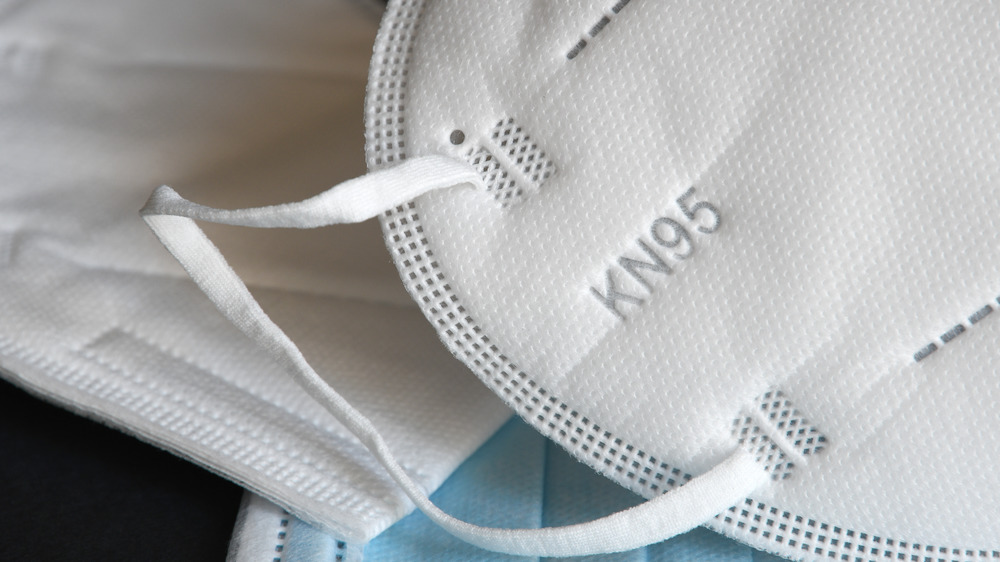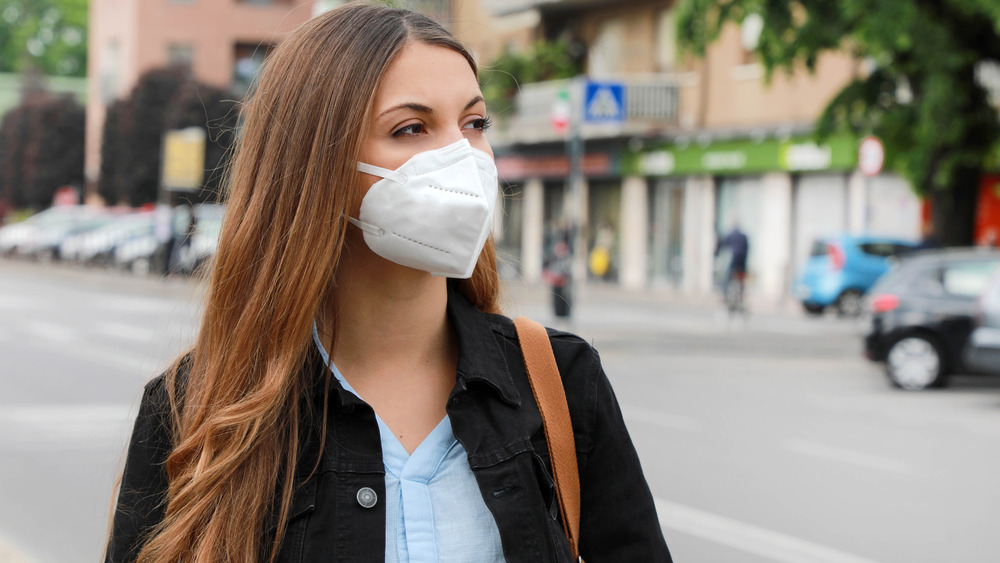The Real Difference Between N95 And KN95 Face Masks
Who knew there was such a wide variety of face masks? It can be quite overwhelming, but the focus here is on KN95 masks and N95 masks. They are similar in how they are made, which is why they have similar names — a hint to how well they work. They both filter up to 95 percent of tiny particles as small as 0.03 microns. COVID-19 is about 0.01 microns, but generally accompanies a droplet, making it larger. Both the KN95 and N95 masks are made of polypropylene plastic polymer, a synthetic material (via Rolling Stone).
In a September 2020 study in Science Advances, researchers examined 14 different types of face masks. The results? The worst one was the neck gaiter, and the clear winner was the fitted N95 mask.
The big difference in the masks is that the N95 masks are certified by National Institute for Occupational Safety and Health (NIOSH), and the KN95 is not. KN95 masks are commonly made in China, and makers can seek NIOSH approval (via the CDC).
The N95 masks need to be reserved for healthcare workers. But that's okay. KN95 masks that meet requirements similar to the NIOSH requirements for the N95 mask are fairly easy to find.
How to find a legitimate KN95 mask
Unfortunately, you need to watch out for fakes when shopping for a KN95 mask. The CDC reports that about 60 percent of KN95 masks in the U.S. alone are counterfeits, meaning they will not filter 95 percent of tiny particles in the air — the whole reason these masks are superior. So how do you find a legit KN95 mask that will filter COVID-19 and other tiny particles?
The FDA has stepped in for non-healthcare workers to approve some Chinese manufacturers of KN95 masks — but there are still counterfeits circulating. That's like doling out the money for a Louis Vuitton and finding out it's a fake, except this time your health and the health of those around you are at risk.
Dr. Julie Chen, an integrative medicine physician, spoke to Health on what to look for. Avoid any decorative fabrics on the masks and sequins. Avoid supposed KN95 masks that claim they are safe for children. Look for an FDA approval mark on the packaging or the mask or an anti-counterfeit label so you can verify the mask is authentic by going to the manufacturer's website.
If you still have any doubts, the CDC recommends calling the manufacturer directly to ensure they are the ones making and selling the KN95 face mask you want to buy.


